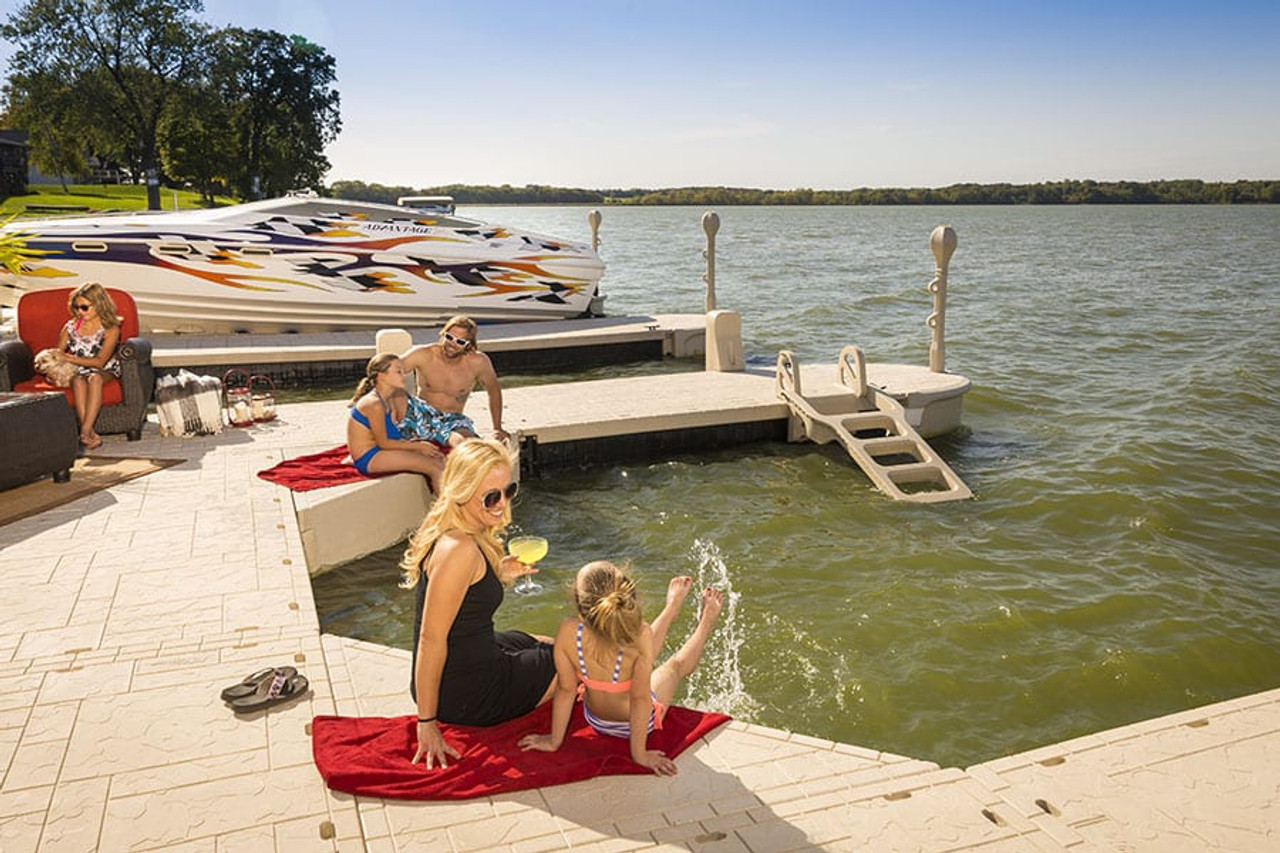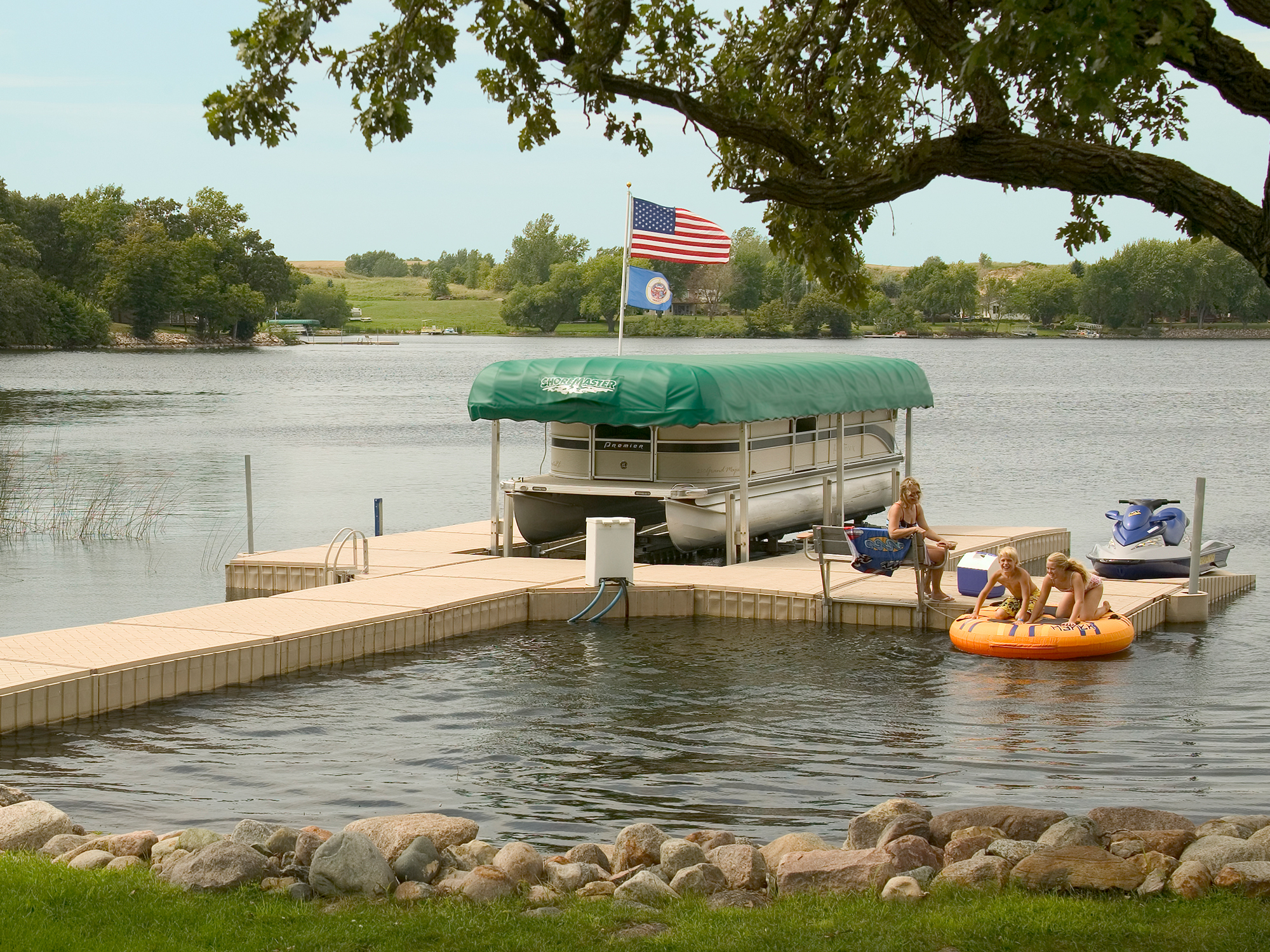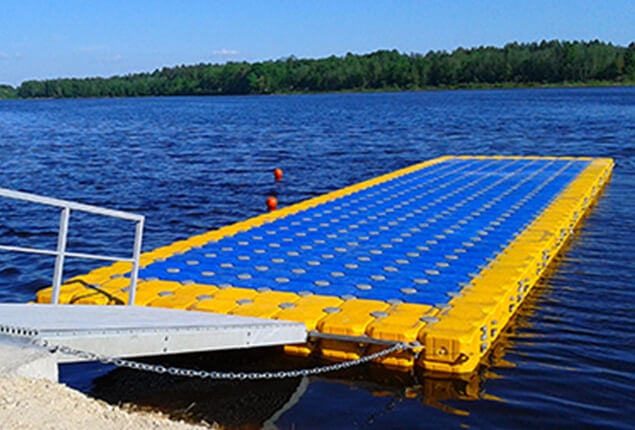Leading Reasons to Partner with a Reliable Floating Dock Company for Your Next Project
Leading Reasons to Partner with a Reliable Floating Dock Company for Your Next Project
Blog Article
The Ultimate Guide to Choosing the most effective Floating Docks
Choosing the excellent floating dock needs an extensive understanding of different components that influence both performance and durability. Elements such as dock kinds, products, and important functions dramatically influence your decision-making procedure.
Understanding Floating Dock Types
When choosing a drifting dock, it is necessary to understand the various types available, as each serves unique functions and applications. Floating docks mostly fall under 3 groups: modular, fixed, and pontoon docks.
Modular docks are made up of specific areas that can be conveniently constructed or reconfigured, making them ideal for changing water levels and diverse usages, such as entertainment tasks or business procedures. Their flexibility allows for customization based on specific demands.

Pontoon docks are characterized by their resilient framework, typically composed of multiple pontoons that offer stability and support. They are especially well-suited for bigger vessels and are commonly used in marinas or for waterside residential properties. Understanding these kinds help in selecting one of the most appropriate floating dock to meet details needs, making certain optimal performance and safety and security.
Secret Materials for Sturdiness
Picking the right materials for floating docks significantly effects their longevity and durability. One of the most common materials include timber, plastic, steel, and composite products, each offering distinctive advantages and restrictions.
Timber, often preferred for its aesthetic appeal, needs routine upkeep to hold up against dampness and decay. Pressure-treated lumber can enhance resistance to rot, but it may still be prone to bugs and weathering.

Plastic docks, made from high-density polyethylene (HDPE), are resistant to deterioration, UV radiation, and effect, making them a prominent choice for seaside atmospheres. Their lightweight nature additionally assists in easy installment and moving.
Steel docks, commonly built from aluminum or galvanized steel, give outstanding stamina and resilience. They are resistant to rust, particularly when dealt with, however might need additional insulation to stop warmth build-up in warm climates.
Composite products, integrating timber fibers and plastics, deliver the advantages of both wood and plastic, standing up to moisture and fading while calling for very little upkeep. - floating dock services
Ultimately, the selection of materials need to align with ecological conditions, meant use, and maintenance choices to guarantee the floating dock remains useful and aesthetically pleasing over time.
Essential Functions to Take Into Consideration
While the choice of materials is critical, considering crucial features for floating docks is just as important to make sure optimum performance and individual complete satisfaction. One vital feature to evaluate is the dock's buoyancy ability, which establishes just how much weight it can support without immersing. floating dock services. This is important for fitting watercrafts, individual watercraft, and even leisure tasks
Additionally, mobility is a significant consideration. Relying on your demands, you might want a dock that is simple to dismantle and transport, particularly if you plan to move it seasonally. Stability is one more vital function; a properly designed floating dock must decrease movement brought on by wind and water currents, offering a protected platform for individuals.
Security functions, such as non-slip surface areas and rounded sides, are also vital to avoid crashes, particularly in wet problems. Consider the availability of accessories, such as ladders, bumpers, and cleats, which can improve the performance of your dock.
Setup and Upkeep Tips
Establishing up and preserving a drifting dock requires careful preparation and focus to information to ensure its long life and optimum efficiency. Begin by selecting a suitable location that reduces exposure to strong currents and waves, which can cause damage. Make certain that the water deepness suffices for the dock's height and that it is anchored securely to avoid activity.
Throughout installation, comply with the producer's guidelines very closely, as incorrect assembly can compromise stability. Usage high-grade materials immune to rust, such as aluminum or treated wood, to improve longevity. Frequently examine all elements, consisting of floats, adapters, and anchoring systems, for indications of damages or wear.
If your dock utilizes flotation tools, guarantee they continue to be cost-free and undamaged from slits. By adhering to these installment and upkeep pointers, you can appreciate a trusted and useful floating dock for years to come.
Budgeting for Your Dock
Budgeting for your dock is a crucial action that can dramatically affect your general satisfaction and financial investment in a beachfront residential or commercial property. Establishing a clear spending plan aids you navigate the various alternatives offered and ensures you make informed choices that line up with your financial capacities.
Begin by establishing the size and design of the dock you call for, as these variables will considerably influence the price. Floating docks can differ substantially in cost, depending on products, buoyancy, and attributes like ramps and devices. Research various producers and providers to compare rates and recognize the marketplace worth.
Along with first costs, take into consideration continuous expenditures such as maintenance, insurance, and possible repairs. Allot funds for these repeating prices to avoid shocks down the line. It's also sensible to budget for any type of necessary permits or inspections, which may be called for by local guidelines.
Lastly, bear in mind the possible roi. A tactical dock can boost your home's value and appeal, offering a favorable financial effect in the lengthy term. By budgeting properly, you can guarantee that your dock satisfies your demands without compromising your monetary security.
Final Thought
Finally, choosing the excellent floating dock demands a thorough analysis of different aspects, consisting of dock types, materials, vital functions, and setup processes. Prioritizing resilience and compliance read more with local regulations ultimately boosts functionality and building worth. Careful consideration of monetary constraints will even more guarantee an audio financial investment. By adhering to these guidelines, people can make enlightened decisions that promote lasting complete satisfaction and usability in marine settings.

While the choice of materials is critical, considering vital functions for floating docks is just as important to guarantee optimum efficiency and user satisfaction.Establishing up and keeping a floating dock needs cautious preparation and focus to information to guarantee its long life and optimum efficiency. Floating docks can differ significantly in cost, depending on products, buoyancy, and visit their website functions like ramps and devices.In final thought, choosing the excellent floating dock demands a comprehensive analysis of Our site numerous variables, consisting of dock kinds, products, necessary attributes, and installment procedures.
Report this page